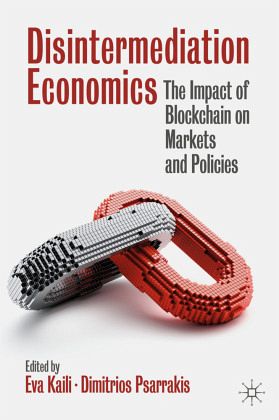
Disintermediation Economics
The Impact of Blockchain on Markets and Policies
Herausgegeben: Kaili, Eva; Psarrakis, Dimitrios

PAYBACK Punkte
21 °P sammeln!
This book provides a coherent Blockchain framework for the business community, governments, and universities structured around microeconomics, macroeconomics, finance, and political economy and identifies how business organizations, financial markets and governmental policies are changed by digitalization, specifically Blockchain. This framework, what they authors call "disintermediation economics," affects everything by providing a paradigm that transforms the way we organize markets and value chains, financial services, central banking, budgetary policies, innovation ecosystems, government s...
This book provides a coherent Blockchain framework for the business community, governments, and universities structured around microeconomics, macroeconomics, finance, and political economy and identifies how business organizations, financial markets and governmental policies are changed by digitalization, specifically Blockchain. This framework, what they authors call "disintermediation economics," affects everything by providing a paradigm that transforms the way we organize markets and value chains, financial services, central banking, budgetary policies, innovation ecosystems, government services, and civil society. Bringing together leading and experienced policy makers, corporate practitioners, and academics from top universities, this book offers a road map of best practices that can be immediately useful to firms, policy makers as well as academics by balancing theory with practice.












